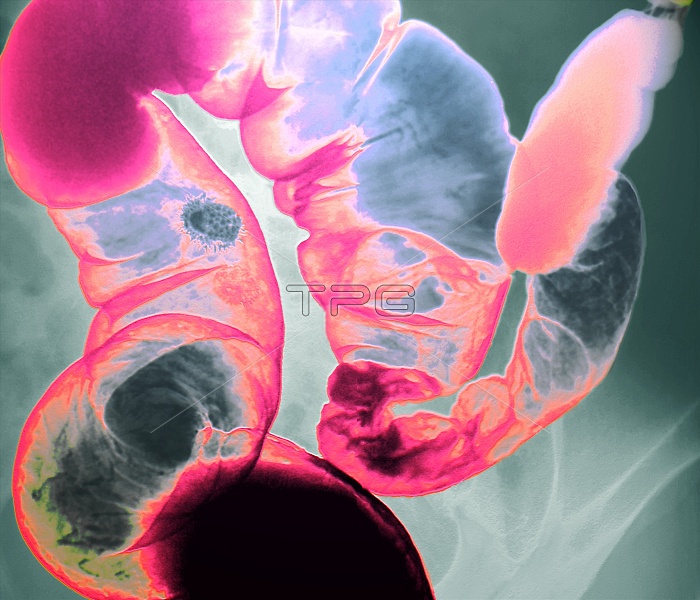
Balantidiasis. Coloured barium X-ray of the large intestine of a patient with balantidiasis, which is caused by the parasitic protozoan Balantidium coli (grey oval, centre left). B. coli, the largest protozoan to infect humans, is spread by ingesting food or water contaminated by fecal matter. It produces enzymes that break down the intestinal wall, causing ulceration, abdominal pain, diarrhoea and vomiting. Ulceration can lead to bacterial infections and haemorrhage and, if left untreated, perforation of the intestine, which is often fatal. B. coli may also spread to the liver, lungs and urogenital tract. Treatment is with antibiotics and amebicides.
| px | px | dpi | = | cm | x | cm | = | MB |
Details
Creative#:
TOP10196028
Source:
達志影像
Authorization Type:
RM
Release Information:
須由TPG 完整授權
Model Release:
N/A
Property Release:
N/A
Right to Privacy:
No
Same folder images:

 Loading
Loading